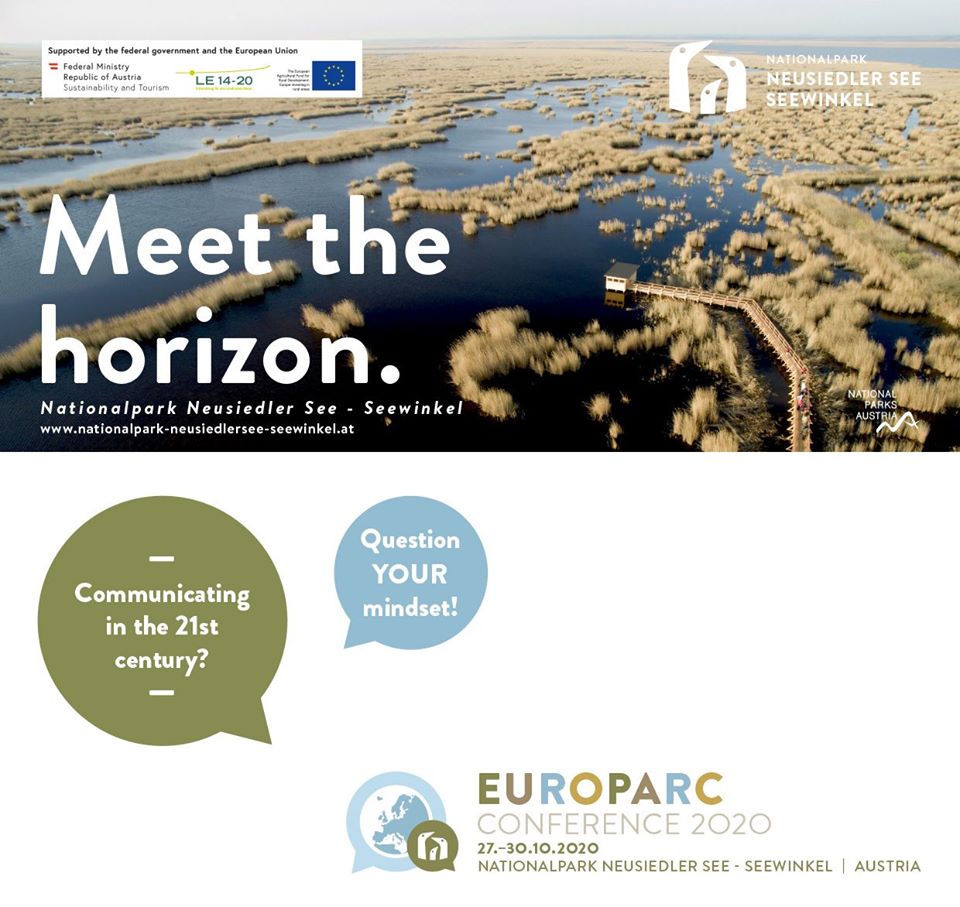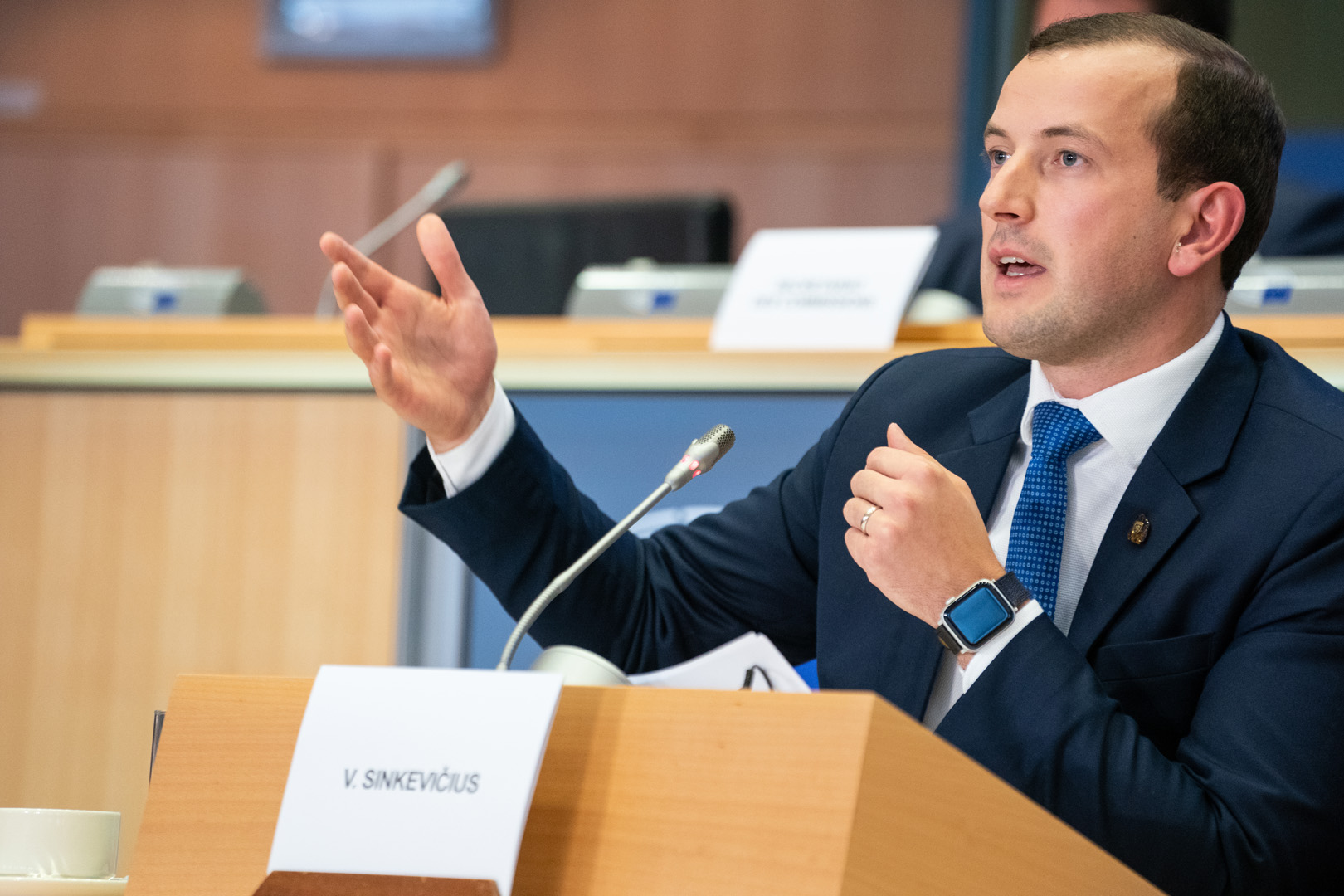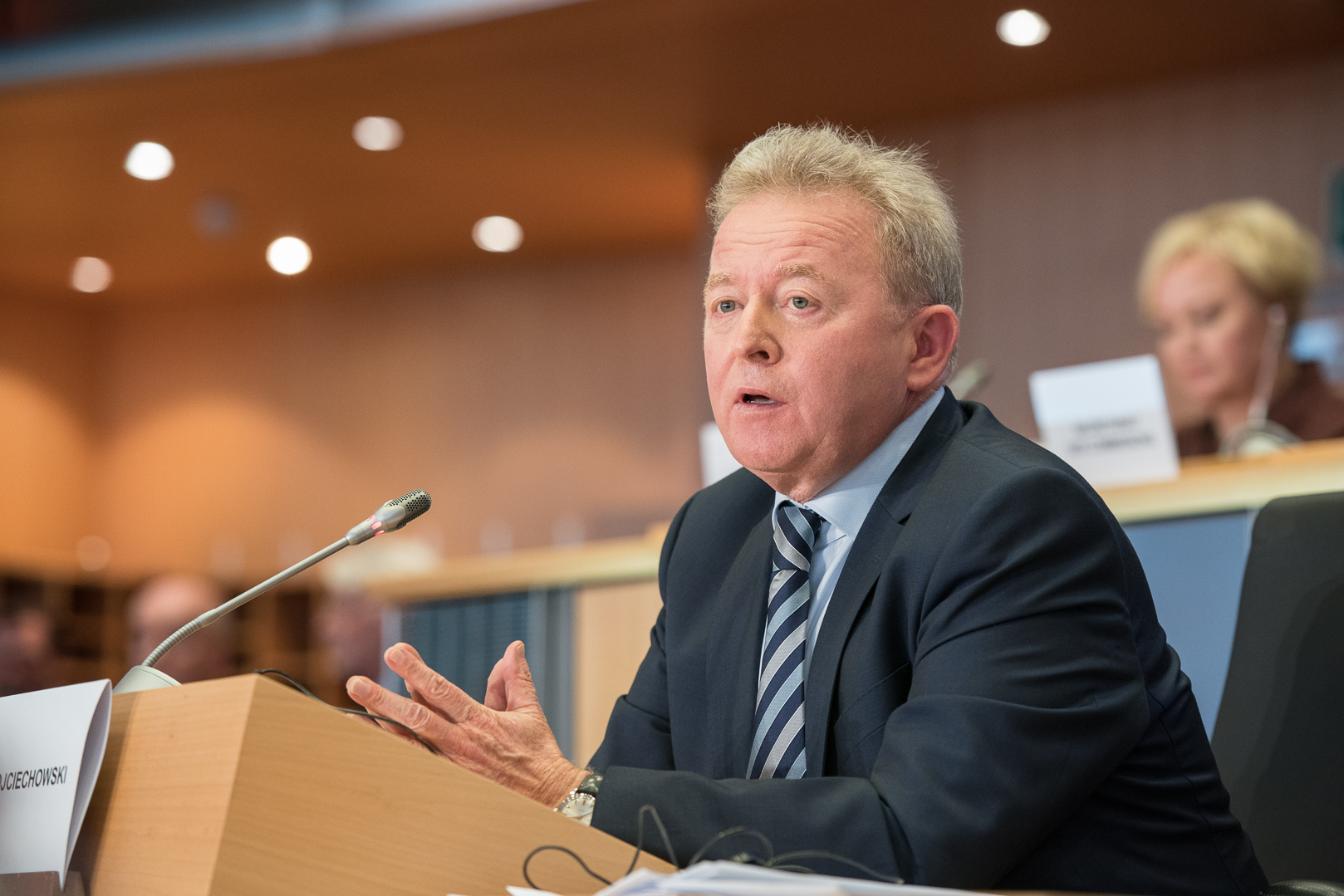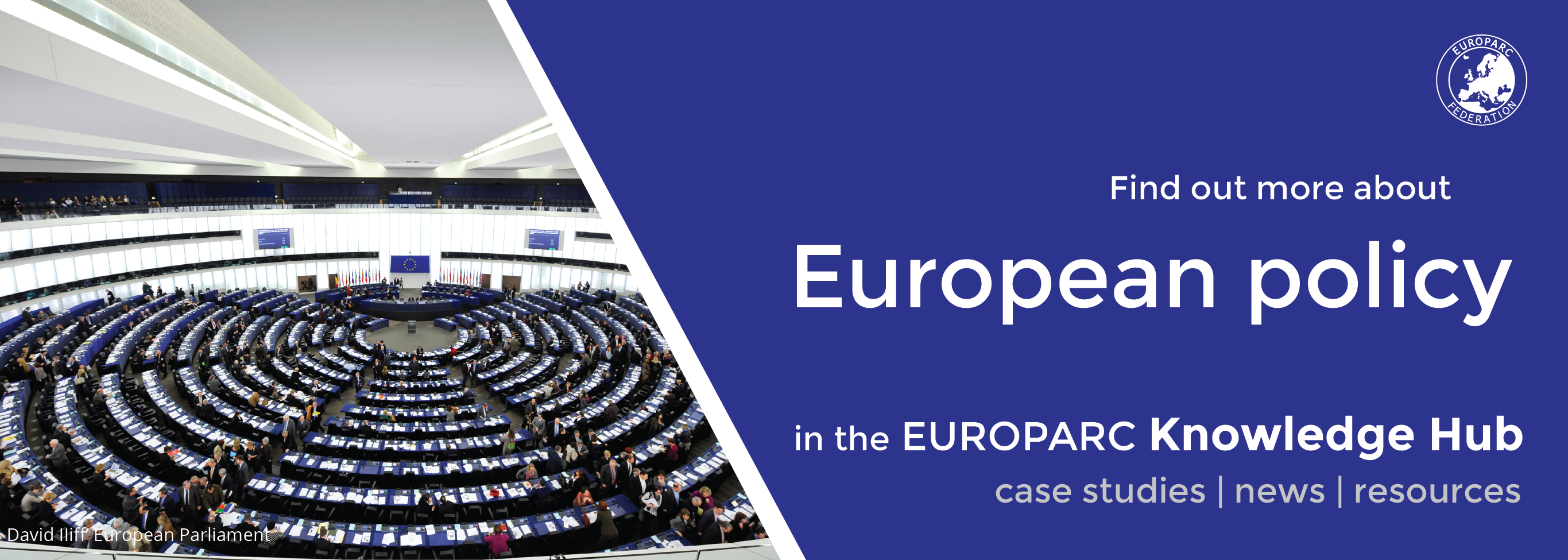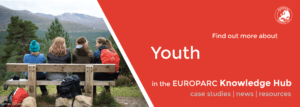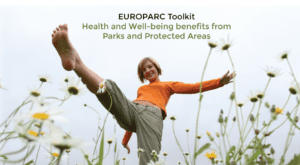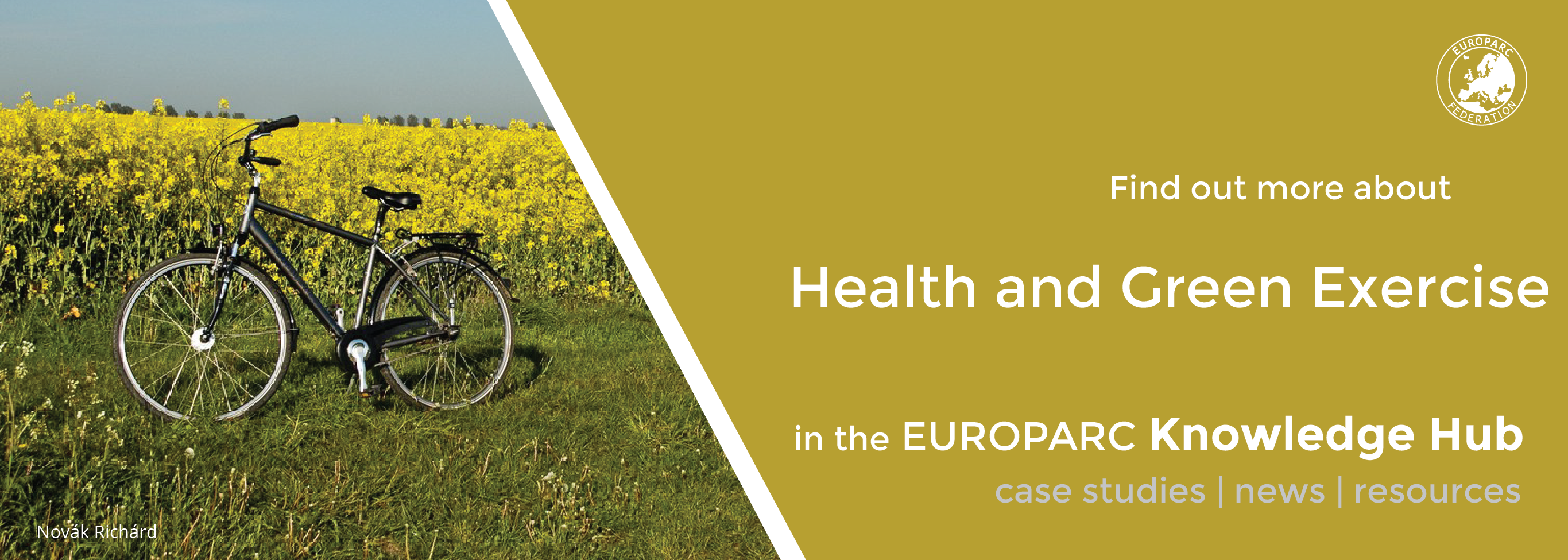Towards a new European Commission with a strong Environmental approach
During the first weeks of October, the Commissioners-designates appointed by Ursula Von der Leyen were heard by the Members of the European Parliament (MEPs) to decide on the suitability of these candidates for the respective proposed positions. The round of public hearings is over and soon, the European Parliament will vote on the full College of Commissioners.
Towards a new European Commission
After the election of Ursula von der Leyen as the new President of the European Commission (elected by the European Parliament on the past 16th of July 2019), the German politician became the first woman leading the EU Commission.
How will the ambitions of von der Leyen’s Presidency for the next five years fit with the interests of European Protected Areas?
On the principle of ‘‘doing it the European way’’, the President has already launched her first statements and headline desires:
A European Green Deal, an economy that works for people, a Europe fit for the digital age, protecting our European way of life, a stronger Europe in the world and a new push for European democracy.
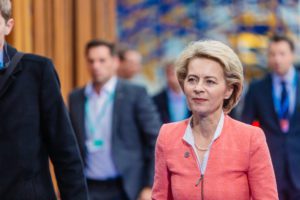
EU Commission President, Ursula von der Leyen by Arno Mikkor
What is interesting about these objectives is the close relationship with an ambitious climate agenda and the wish to make Europe the first climate-neutral continent by 2050.
Ursula also underlined the importance of strengthening European democracy and creating a fair social market, with an emphasis on people and regions, which she aims to leverage through a “Just Transition Fund” to support local communities in coal-heavy regions across Europe away from fossil fuels, and through a “Stability and Growth Path“.
Climate change is definitely a priority for Protected Areas:
it will be important to see if and how the new Commission will include in the climate agenda not only the energy and coal and fossil fuel dependency but also the impact and mitigation measures connected with nature conservation. EUROPARC is actively working on supporting parks in mitigation and adaptation measures, and later this month, we will have a (free) webinar exclusively dedicated to it.
A strong commitment to the Environment
Looking at the environmental challenges the world is facing, von der Leyens’ approach seems ambitious and responsible, as she puts at the top of European priorities the target to reduce by 50% (or even 55%) CO2 emissions by 2030, through the creation of a Green Deal for Europe and the first European Climate Law.
Other important measures will be the creation of a Sustainable Europe Investment Plan and a Climate Bank, a raised effort to meet the Sustainable Development Goals (SDGs), an updated Circular Economy Action Plan with special attention given to single-use plastics. In addition, the carbon emissions policy will be strengthened and include a new Carbon Border Tax, as she considers that ‘‘all of us and every sector will have to contribute to reducing emissions. Emissions must have a price that changes our behaviour’’.
Ursula’s Commission will also present a new Biodiversity Strategy for 2030 and launch the Farm to Fork Strategy in order to support European farmers towards a more sustainable food chain production.
Not long ago, even the word “biodiversity” was considered too technical to be used in the dialogue with public and with decision-makers.
Today biodiversity has become a priority for the Commission at the highest level. European Protected Areas can be nothing but happy to see this big change from the past.
Although the Commissioners’ designation is not yet definitive, these are the names you should know (and the Public hearings you shouldn’t’ miss!):
- Frans Timmermans is proposed as Executive Vice-President responsible for the EU Green Deal
- Virginijus Sinkevičius is proposed as Commissioner for Environment and Oceans
- Janusz Wojciechowski is proposed as Commissioner for Agriculture
Virginijus Sinkevičius (Environment & Oceans, Lithuania)
Despite his background in economics, the Lithuanian Virginijus Sinkevičius will have the mission of conserving Europe’s natural environment and work for a prosperous and sustainable fishing, with a thriving blue economy. Virginijus will be the youngest Commissioner-designate in the history of the EU, and for the first time, ‘Oceans’ will be included under the environment portfolio (before no mention was given to Oceans, simply to “maritime affairs”). Sinkevičius’ most important priorities include:
- A new Biodiversity Strategy for 2030
- the 2020 Conference of the Parties to the Convention on Biological Diversity
- a Zero-pollution ambition
- a Circular Economy Action Plan
- a Microplastics Action Plan
- the implementation of the reformed Common Fisheries Policy
- ‘Farm to Fork’ strategy on sustainable food
- an international ocean governance
- and a new approach for a sustainable blue economy
Sinkevičius got the green light from MEPs after presenting himself well prepared for the role during his public hearing. “For us, the ambitions for 2050 are not just a target on a piece of paper, we have to live it” affirmed the young Commissioner-designate when talking about the climate neutrality objective settled by Von der Leyen in her mission letter. At the end of his speech, Virginijus promised that his mandate will be the greenest Europe has ever seen, triggering strong applause from a large part of the hemicycle.
This mandate will be the greenest that Europe has ever seen (Virginijus Sinkevičius)
Several aspects of the Mr Sinkevičius’s mandate will be important for Protected Areas
As already mentioned, the biodiversity strategy will be the most important one. EUROPARC is already in dialogue with the European institutions for years: we really would like to see the role of national and regional protected areas in the implementation and achievement of the EU policies. And recognised at high-level, in a stable and strong way: all parks, indeed, reinforce the Natura 2000 network, which, alone, cannot attain the conservation of the European habitats and species. Read our policy paper on European Protected Areas and Sustainable Agriculture.
The Farm to Fork strategy jointly entrusted to the Commissioner of Environment and to the Commissioner of Agriculture, and coordinated by the Commissioner for the Green Deal, will imply a new consideration of the connection between farming, nature conservation, health and environment, as always claimed by the European parks.
Last but not least, the importance given to oceans governance and to the blue economy let hope for renewed and reinforced political attention toward Europe´s marine protected areas.
Frans Timmermans (Executive Vice-President for the European Green Deal, Netherlands)
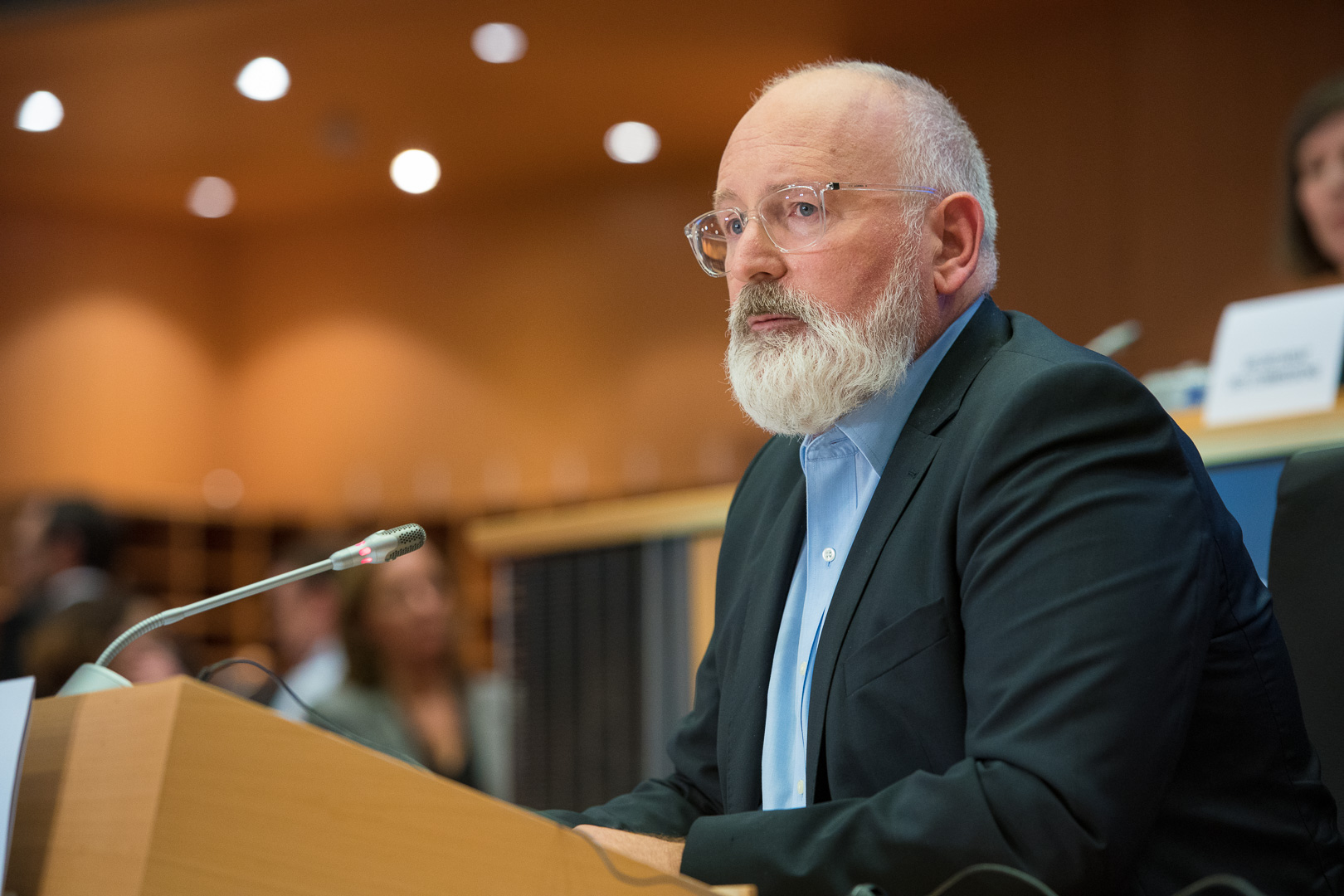
Hearing of Frans Timmermans (the Netherlands) – Executive Vice President-Designate – European Green Deal (News, European Parliament)
Timmermans will be in charge of the European Green Deal and Climate Action (with the European Climate Law and European Climate Pact), which should be defined within his first 100 days in office. The Dutch Social Democrat will be Climate Chief and for that, he will take some important measures as reducing emissions by 2030 financed by the new “Just Transition Fund”.
He also promised to control transport emissions stating “I don’t want a car-free Europe. I want emission-free cars in Europe”. In regards to the energy transition, Timmermans added “it’s absolutely clear there’s no future in coal”, a strong statement that won the approval of the MEPs and made him being considered as one of the best candidates for leading the new Commission. As a skilled politician, he underlined the importance of international cooperation in fighting climate change and the role of the Europen Union in setting up new environmental standards for the world.
In leading the work on the European Green Deal, Timmermans will ensure that climate, energy, environment are fully taken into account in all political dimensions. Therefore, his role will be to guarantee coherence between the EU policies. In particular, looking at the Protected Areas perspective, it is important to underline
the declared ambition of this Commission that Europe must lead the world when it comes to protecting our biodiversity.
Timmermans will ensure the Commission mainstreams biodiversity priorities across all policy areas, notably trade, industry, agriculture, and maritime affairs. To do this, Timmermans will coordinate also the work on the Biodiversity Strategy for 2030.
Janusz Wojciechowski (Agriculture, Poland)
The previous Polish MEP Janusz Wojciechowski committed to achieving a modern and sustainable European agriculture. Despite his failure at the first hearing – as his answers did not convince the MEPs in the first round – he did get approval in the second round, when he opted to speak in Polish, his native language, to better express his intentions.
Wojciechowski has a large experience in agriculture (he was a member of the AGRI Committee in the past European Parliament) and underlined that special attention will be given to small farmers. He will be in charge of some important decisions like the new Common Agricultural Policy (CAP) for 2020, which will cover topics such as animal welfare, food quality and competitiveness, and will have a very close relation with climate change, landscapes, and biodiversity.
Together with the Commissioner of Environment, he will be in charge to develop the ‘Farm to Fork’ strategy for sustainable food, looking at how the agri-food sector can improve the sustainability of food production across the food chain, including through organic production.
Janusz will be also in charge to develop a new long-term vision for rural areas.
This last point is probably one of the most important for Protected Areas perspective: it will be necessary that the role of Protected Areas in the rural development will be recognised by the EU institutions and also by the Member States in the elaboration of the National Strategic Plans under the new Common Agricultural Policy.
The proposed Commissioners will be finally elected by the European Parliament soon, but a positive conclusion is evident: the aim of building a greener European Union, ready to act for climate and environment.
Cairngorms Youth Action is recruiting!
Source: Cairngorms National Park website.
The Cairngorms Youth Action Team was officially launched on Monday 7th October by Mairi Gougeon, the Minister for the Environment and Rural Affairs. The Team is now looking for people aged 14-26 years from all over Scotland, who want to get involved in the future of the Cairngorms National Park.
Join the Cairngorms Youth Action Team
Cairngorms Youth Action is a new project developed by the Cairngorms National Park Authority to help address the issues identified by young people and outlined in the EUROPARC Youth Manifesto.
On the occasion of launching the Cairngorms Youth Action, the Minister for the Environment and Rural Affairs, Mairi Gougeon, said:
It is vital that Scotland’s young people are listened to and included in decisions that affect their future, and the Cairngorms Youth Action project will do just that: empowering young people to play a strong role in creating a sustainable future for the Cairngorms – a vital piece of our natural heritage.
Cairngorms Youth Action aims to:
- be the voice of youth in the Park by recruiting young people to form the Cairngorms Youth Action Team.
- develop a procedure to fund young people’s ideas about living, learning and working in the Park by giving them a grant.
- organise educational, exciting and innovative events for young people in the Park.
Apply now!
Do you live in Scotland and are you between 14 and 26 years old? Do you want to participate in a meaningful and representative discussion about issues related to the park with a group of your peers? If you would like to join, apply here and someone will be in touch. For more information on the application process, email alansmith@cairngorms.co.uk.
Watch a short introductory video made by the Cairngorms Youth Action Team:
Purpose
Cairngorms Youth Action is an empowering and inspiring platform for young people to share and develop ideas that lead to proactive participation in decision making. It will engage with the natural and cultural heritage of local rural communities and enable young people to tackle issues and create positive change.
By including the voice of young people and their constantly evolving ideas, we can create a sustainable future for our park.
About the Youth Manifesto
The EUROPARC Youth Manifesto is a source of ideas and inspiration for decision-makers in Protected Areas and rural communities to ensure the involvement and empowerment of young people. Being the the decision makers of tomorrow, young people play an important role in looking after Europe’s Protected Areas. They should be given the chance to have a say and help leading the way to a sustainable future of our parks already today.
It is vital that young people get involved in the governance of Protected Areas, so they can share their perspectives on the issues that will impact their future development and that of our natural and cultural heritage. And it is now that they can develop the skills it will take to manage resilient parks and build sustainable communities.
Learn more about our activities for young people between 12 – 25, empowering them to grow close connection with nature. Get an idea of our Junior Ranger Programme aimed at young people aged 12-18, and find out about opportunities with our Youth+ Programme aimed at youngsters over 18!
[24th October] EUROPARC Webinar “Healthy Parks, Healthy People Europe”
EUROPARC webinars give you the opportunity to get new ideas, tools and inspiration from other Protected Area professionals. At real time. Person to person. Without leaving your office. Join us online on the 24th of October. Participation is free and everyone is welcomed to join us with a webcam and microphone – for a truly interactive experience!
Webinar Healthy Parks, Healthy People Europe – realising the potential of Parks & Protected Areas as ‘Natural Health Centres’
- 24th October
- 11:00 CEST
- Register here
Our Parks and Protected Areas are a health-promoting asset. They have a crucial role in nurturing healthy ecosystems which are good for nature and sustain our societies. In providing opportunities for people to experience and enjoy nature, they also support the mental, physical, emotional, spiritual and social health and well-being of people and communities across Europe.
At its recent annual conference in Latvia, the EUROPARC Federation committed to developing a “healthy parks, healthy people” programme for Europe. The Jūrmala Communiqué sets out a range of action required to do this and to realise the potential of Parks and Protected Areas as natural health centres.
The statement builds on the publication last year of the EUROPARC Federation toolkit Health & Well-being Benefits from Parks & Protected Areas which brought together a range of experience from across Europe to highlight the key elements of work required for Parks and Protected Areas to support this agenda.
In this webinar, you will learn more about the background to the development of the communiqué and how it will be taken forward in practice. Hear first-hand about the experience of the original Healthy Parks, Healthy People programme developed by Parks Victoria in Australia. Find out more about the key steps that Parks and Protected Areas across Europe are taking to contribute to this agenda, and help us shape the development of this exciting new programme moving forward.
The case study presenters will share with us their experience relating to
developing a Healthy Parks Healthy People programme, exploring some of the key steps in delivering on this agenda, drawing on the EUROPARC toolkit and providing practical examples of the work currently taking place in Parks and Protected Areas.
- Case study 1 The Healthy Parks Healthy People Approach – the Australian experience, by Deborah Prentice, Parks Victoria, Australia
- Case study 2 The Flemish Nature and Health network, by Liesbeth Van Gysegem, Regional Landscapes Limburg, Belgium
- Case study 3 The Wild Ways Well programme, Cumbernauld – Scotland, by By Paul Barclay, Cumbernauld Living Landscape, UK
The Webinar will be moderated by Pete Rawcliffe from Scottish Natural Heritage and Council member of EUROPARC Federation. Pete will introduce the EUROPARC Federation’s Jūrmala Communiqué and highlight how it can help our National Parks and other Protected Areas to realise their potential as “natural health centres”.
The EUROPARC Conference goes to Austria! Save the date: 27-30 October 2020
The EUROPARC Conference is the event of the year for those working in Europe’s Protected Areas and Natura 2000 sites. In 2020, EUROPARC Conference is host by the Austrian Ministry of Sustainability and Tourism, save the date!
October 27-30th in Neusiedler See – Seewinkel National Park, Austria.
Communicating in the 21st Century? Question your mindset!
In October 2020, the Neusiedler See – Seewinkel National Park in Austria will host EUROPARC Conference 2020. After we have looked at the value of nature across multiple sectors of society at EUROPARC Conference 2019, in 2020 we will make you question your communications... How are we speaking to our audiences? Are we also looking from a human perspective to the many challenges our Protected Areas face? Can we use technology to better reach out people’s understanding and encourage respect for nature?
Over 300 international delegates are expected to meet in the Neusiedler See National Park, to explore how Protected Areas can effectively communicate in the 21st Century.
The programme includes inspiring keynote speakers, practical workshops with cutting-edge examples for Europe’s protected areas, a knowledge Market where everyone is invited to join with a stall to share information about its park or projects, and of course, amazing field trips to the National Park its Hungarian Transboundary neighbour, Fertö-Hanság National Park. Learn more about the Transboundary cooperation between Neusiedler See and Fertö-Hanság.
